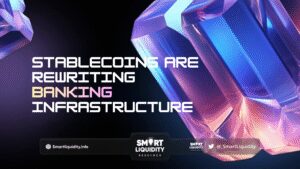Introduction to Blockchain Explorers


A blockchain explorer is a powerful tool that allows users to search, analyze, and verify blockchain transactions, wallet addresses, and blocks in real time. Acting as a search engine for blockchain networks, it ensures transparency, security, and accessibility. This article explores how blockchain explorers work, their features, importance, and future developments.
What is a Blockchain Explorer?
A blockchain explorer is a web-based tool that allows users to browse and analyze blockchain transactions, addresses, blocks, and other critical network data. It acts as a search engine for blockchain networks, offering transparency and real-time insights into on-chain activities. Each blockchain has its own explorer, such as Etherscan for Ethereum and Blockchain.com for Bitcoin.
Blockchain explorers are essential for verifying transactions, ensuring security, and analyzing blockchain activity. Without these tools, it would be difficult for users to validate transfers, inspect wallet balances, or track network performance. Given the decentralized nature of blockchain technology, explorers serve as public ledgers that promote trust, accountability, and transparency in the ecosystem.
How Blockchain Explorers Work
Blockchain explorers function by extracting and indexing data from the blockchain’s distributed ledger. They run full nodes that maintain a copy of the entire blockchain, allowing them to process and display data such as:
- Transaction history: Users can track incoming and outgoing transactions for any wallet address.
- Block details: Displays block height, timestamp, miner details, and transaction count.
- Smart contract interactions: On chains like Ethereum, explorers display details of smart contract executions.
- Gas fees and network status: Users can check gas prices, network congestion, and other relevant metrics.
The core mechanism behind blockchain explorers involves querying blockchain nodes and organizing the data in a user-friendly format. This process enables users to look up specific transactions, track miner rewards, and analyze the efficiency of a blockchain network. Explorers typically offer APIs that developers can integrate into their applications to access on-chain data programmatically.
Features of a Blockchain Explorer
Blockchain explorers provide various functionalities that cater to developers, investors, and casual users alike. Some key features include:
| Feature | Description |
| Transaction Search | Allows users to find specific transactions using a hash. |
| Block Lookup | Provides details about mined blocks, including miner and reward. |
| Wallet Balance | Displays balances and transaction history of any public wallet. |
| Smart Contract Data | Offers insights into deployed smart contracts and interactions. |
| Network Metrics | Shows gas fees, network difficulty, and hash rate. |
| Token Transfers | Tracks movements of fungible and non-fungible tokens (NFTs). |
| Fork Detection | Alerts users when a blockchain undergoes a fork or chain split. |
Blockchain explorers are not just tools for monitoring transactions; they also help users verify the legitimacy of smart contracts, track gas fee trends, and understand network health. For developers, explorers offer insights into contract execution failures and transaction confirmations, enabling them to optimize smart contract performance.
Popular Blockchain Explorers
Different blockchains have their respective explorers, each with unique capabilities:
- Bitcoin Explorers: Blockchain.com, BTCScan, Blockchair
- Ethereum Explorers: Etherscan, Ethplorer
- Binance Smart Chain (BSC) Explorers: BscScan
- Solana Explorers: Solscan, Solana Beach
- Polygon Explorers: Polygonscan
- Cardano Explorers: CardanoScan
- Avalanche Explorers: SnowTrace
- Fantom Explorers: FTMScan
Each of these explorers specializes in tracking blockchain activities specific to its network. For instance, Etherscan provides in-depth details about ERC-20 token transfers, while Solscan helps users monitor Solana’s high-speed transactions.
The Importance of Blockchain Explorers
Blockchain explorers play a critical role in fostering trust and transparency within decentralized networks. Key benefits include:
Security Auditing
Blockchain explorers allow users to verify the integrity of transactions and wallet addresses, reducing the risk of fraud. Since all blockchain data is publicly accessible, businesses and individuals can audit financial flows and ensure compliance with security standards.
Investment Insights
Traders and investors rely on blockchain explorers to monitor whale activities, liquidity flows, and market trends. By analyzing large transactions or exchange wallet movements, users can make informed decisions about their investments.
Smart Contract Monitoring
For developers, blockchain explorers provide real-time debugging tools for deployed smart contracts. Developers can track contract execution, analyze failed transactions, and optimize gas usage to improve efficiency.
Regulatory Compliance
Law enforcement agencies and regulatory bodies use blockchain explorers for forensic investigations. They help track illicit transactions, identify suspicious wallet activities, and enforce anti-money laundering (AML) policies.
Network Transparency
By offering a clear view of blockchain operations, explorers ensure that blockchains remain open and transparent. This accessibility helps maintain public trust in decentralized systems and reduces the need for intermediaries.
Challenges and Limitations of Blockchain Explorers
Despite their advantages, blockchain explorers have some limitations that users should be aware of:
- Complexity for Beginners: Navigating blockchain explorers can be overwhelming for new users unfamiliar with technical blockchain data.
- Limited Privacy: While blockchains provide transparency, they do not offer complete anonymity. Transactions and wallet balances are publicly visible, raising privacy concerns for users.
- Dependence on Centralized Services: Most blockchain explorers are centralized platforms operated by specific entities. If these services go offline, users may experience limited access to blockchain data.
- Scalability Issues: During network congestion, explorers may face slow loading times or delays in displaying transaction confirmations.
Future of Blockchain Explorers
The evolution of blockchain explorers is closely tied to advancements in blockchain technology. Some emerging trends include:
- Decentralized Blockchain Explorers: Future explorers may adopt decentralized infrastructures, reducing reliance on central entities.
- AI and Data Analytics Integration: Artificial intelligence (AI) could enhance blockchain analytics, providing predictive insights into transaction patterns and market trends.
- Privacy-Focused Explorers: New blockchain explorers may introduce enhanced privacy features, allowing users to access on-chain data without exposing their wallet addresses.
- Multi-Chain Support: As the blockchain industry expands, explorers will likely evolve to support multiple chains under a single interface, streamlining cross-chain analysis.
Conclusion
Blockchain explorers serve as indispensable tools for anyone interacting with blockchain technology. Whether you’re a trader, developer, or casual user, these explorers provide real-time, transparent access to blockchain data, enhancing both security and efficiency in the Web3 ecosystem. As blockchain adoption continues to grow, the role of explorers will become even more crucial in ensuring accountability, security, and ease of access to on-chain information.




